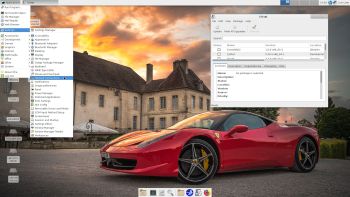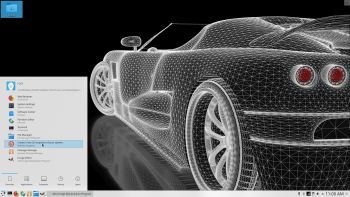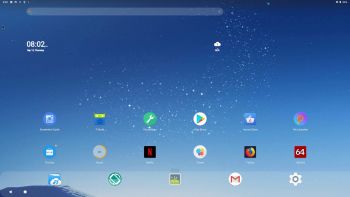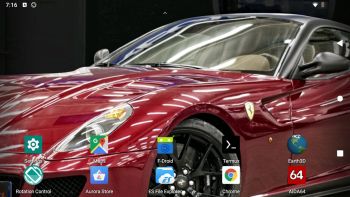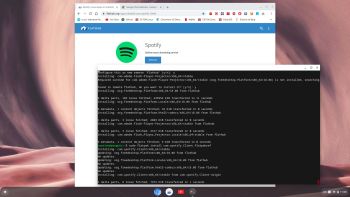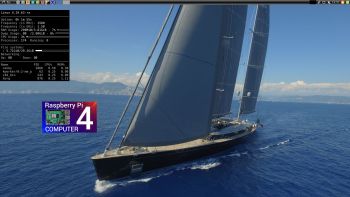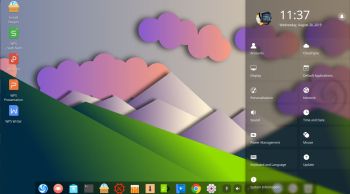 NEWS 190828 ABOUT ExTiX Deepin
NEWS 190828 ABOUT ExTiX Deepin
I’ve released a new version of ExTiX Deepin today (190828). This ExTiX Build is based on Deepin 15.11 released by Deepin Technology 190719.
NEW FUNCTIONS etc
1.You can run ExTiX from RAM. Use boot alternative 3 (load to RAM) or Advanced. A wonderful way to run Linux if you have enough RAM. Everything will be super fast. When ExTiX has booted up you can remove the DVD or USB stick.
2. You will have the opportunity to choose language before you enter the Deepin 15.11 Desktop. All main languages are supported.
3. I have replaced Deepin Installer with the Reborn version of Deepin Installer. Better in every way.
4. I have replaced kernel 5.0.8-extix with kernel 5.3.0-rc6-exton. Kernel 5.3.0-rc6 was released 190826.
5. Spotify and Skype are pre-installed.
6. You can watch Netflix while running Google Chrome.
MORE NEWS 190828 ABOUT ExTiX Deepin 19.8
I’ve released a new version of ExTiX Deepin today with Refracta Snapshot and kernel 5.3.0-rc6-exton. Deepin 15.11 (latest version released 190719) is made in China. Deepin is devoted to providing a beautiful, easy to use, safe and reliable system for global users. Previous versions of ExTiX Deepin were based on Debian and Ubuntu. ExTiX 19.8 is a live build of Deepin 15.11, which is based on Debian unstable. All packages have been updated to the latest available version as of today. Study all installed packages in ExTiX Deepin 19.8 Build 190828. So ExTiX 19.8 is based on Deepin 15.11 and Debian unstable. I may add that there is no other live version of Deepin 15.11 (as far as I know).
Replacement
ExTiX Deepin 19.8 replaces ExTiX 19.4.
The Ultimate Linux System
I’ve called my different versions of ExTiX The Ultimate Linux System for many years by now. As regards ExTiX 19.8 Deepin I feel it’s especially justified. Everything just works.
Refracta Snapshot
While running ExTiX Deepin 19.8 live or from hard drive you can use Refracta Snapshot (pre-installed) to create your own live installable Deepin/Debian system. A ten year child can do it!
Used KERNEL
My special kernel 5.3.0-rc6-exton corresponding Kernel.org’s latest kernel 5.3.0-rc6 released 190826.
What’s new in Linux kernel 5.3?
SCREENSHOTS
1. ExTiX Deepin 15.11 Desktop
2. ExTiX Deepin being installed in VirtualBox using Refracta Installer
3. The installation in VirtualBox is completed
3. ExTiX Deepin login screen (LightDM)
4. Movie showing how to enable Window effects
READ MORE…

Read about my Android-x86 Systems – Pie, Oreo, Nougat, Marshmallow, Lollipop and KitKat at
andex.exton.net – latest is AndEX Pie 9.0 (without GAPPS) and AndEX Oreo 8.1 (with GAPPS)!
and about my Pie, Oreo, Nougat, Marshmallow and Lollipop versions for Raspberry Pi 3/2 at
raspex.exton.se – latest is RaspAnd Pie 9.0 (without GAPPS) and RaspAnd Oreo 8.1 (with GAPPS)!
 OSTechNix has written an excellent article about How to create persistent live USB on Ubuntu.
OSTechNix has written an excellent article about How to create persistent live USB on Ubuntu.